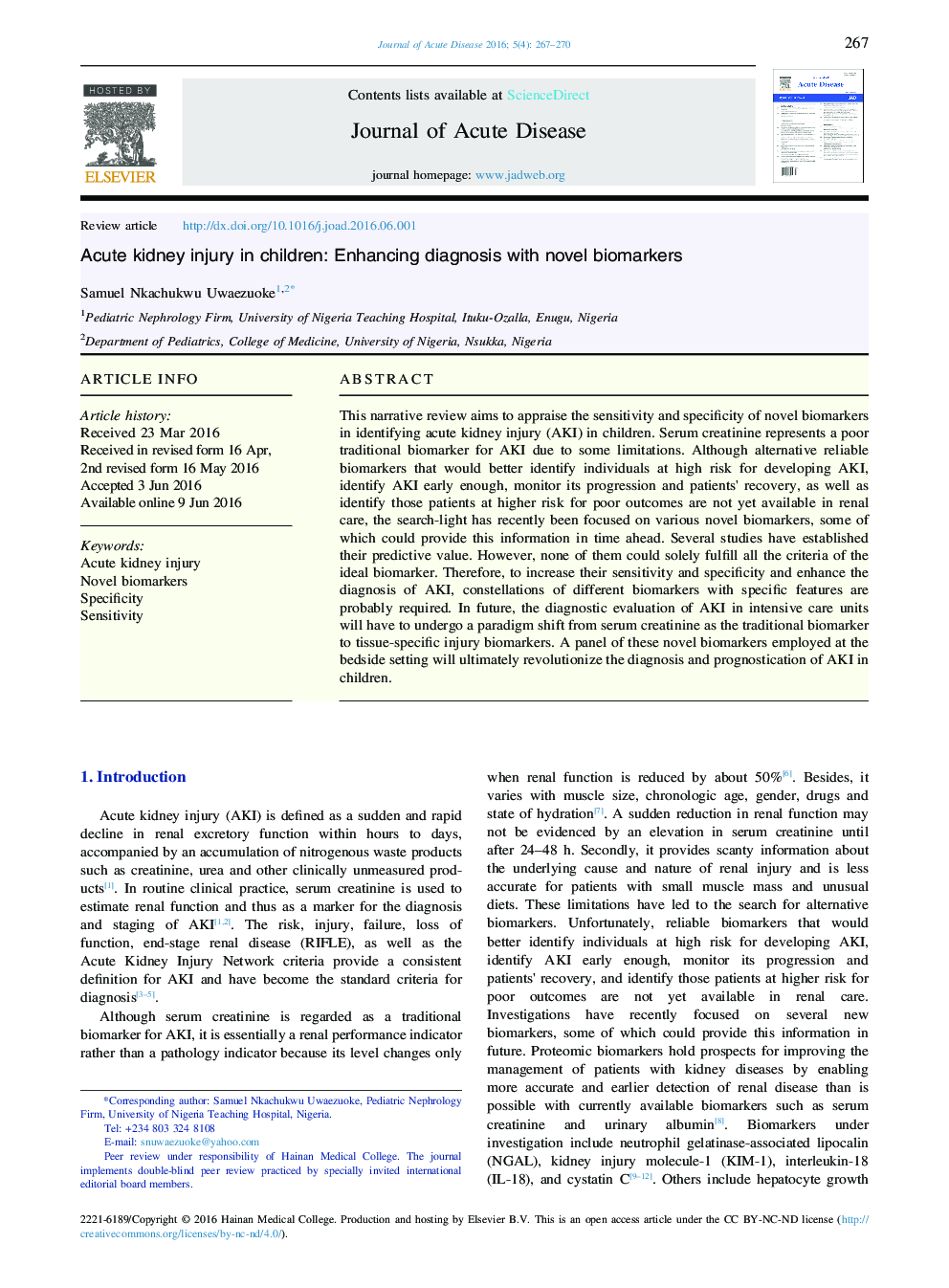| Article ID | Journal | Published Year | Pages | File Type |
|---|---|---|---|---|
| 3475070 | Journal of Acute Disease | 2016 | 4 Pages |
This narrative review aims to appraise the sensitivity and specificity of novel biomarkers in identifying acute kidney injury (AKI) in children. Serum creatinine represents a poor traditional biomarker for AKI due to some limitations. Although alternative reliable biomarkers that would better identify individuals at high risk for developing AKI, identify AKI early enough, monitor its progression and patients' recovery, as well as identify those patients at higher risk for poor outcomes are not yet available in renal care, the search-light has recently been focused on various novel biomarkers, some of which could provide this information in time ahead. Several studies have established their predictive value. However, none of them could solely fulfill all the criteria of the ideal biomarker. Therefore, to increase their sensitivity and specificity and enhance the diagnosis of AKI, constellations of different biomarkers with specific features are probably required. In future, the diagnostic evaluation of AKI in intensive care units will have to undergo a paradigm shift from serum creatinine as the traditional biomarker to tissue-specific injury biomarkers. A panel of these novel biomarkers employed at the bedside setting will ultimately revolutionize the diagnosis and prognostication of AKI in children.
